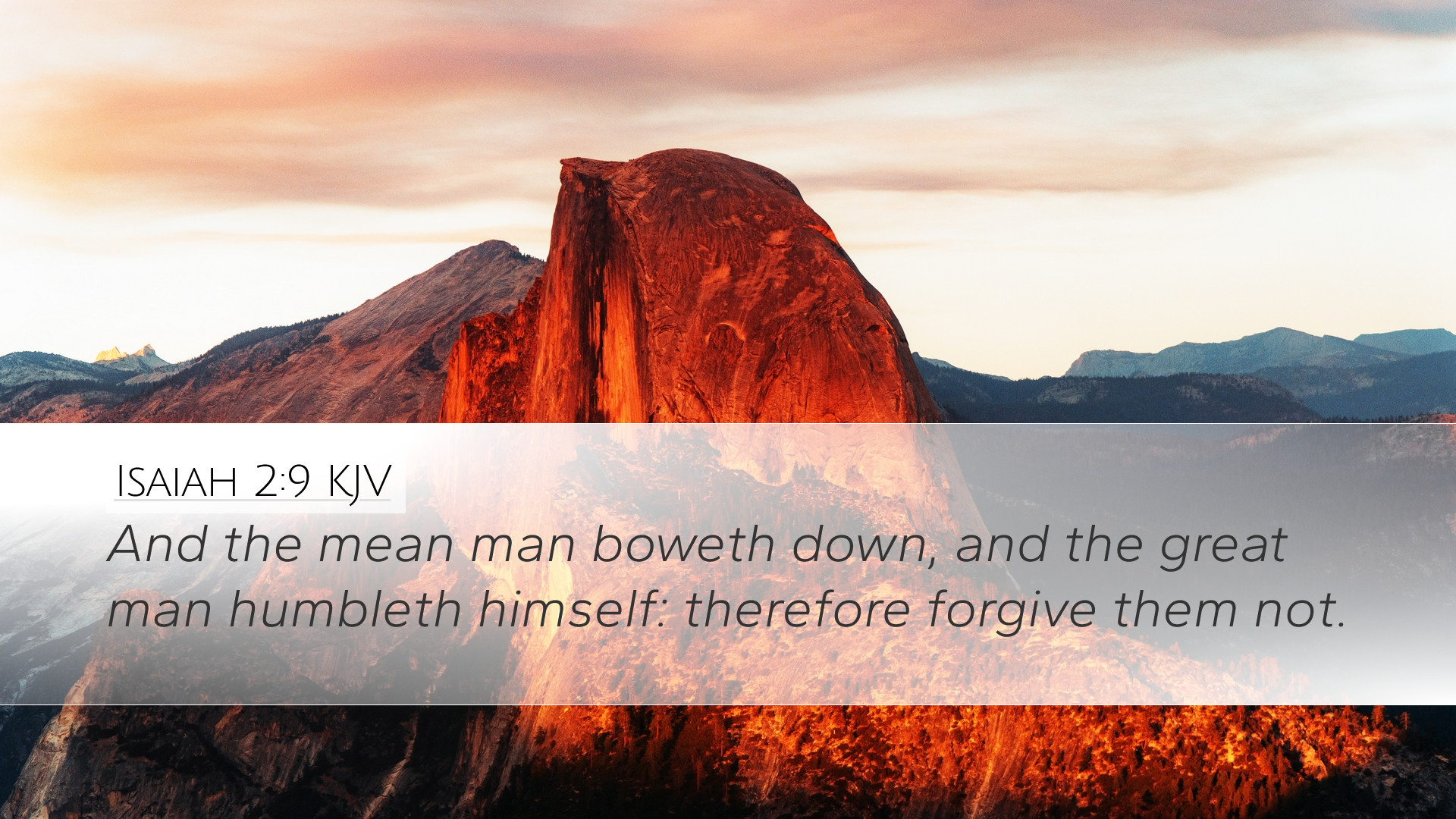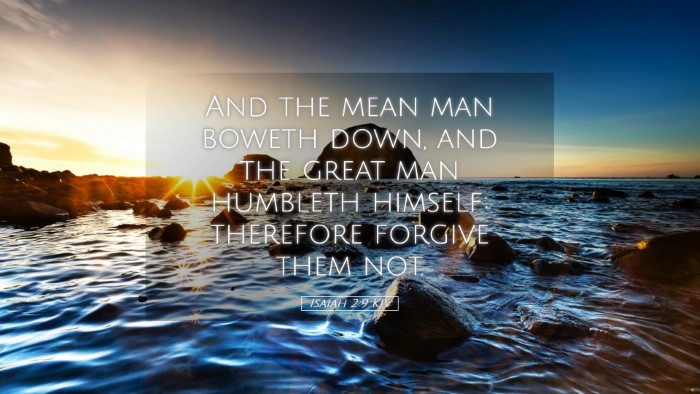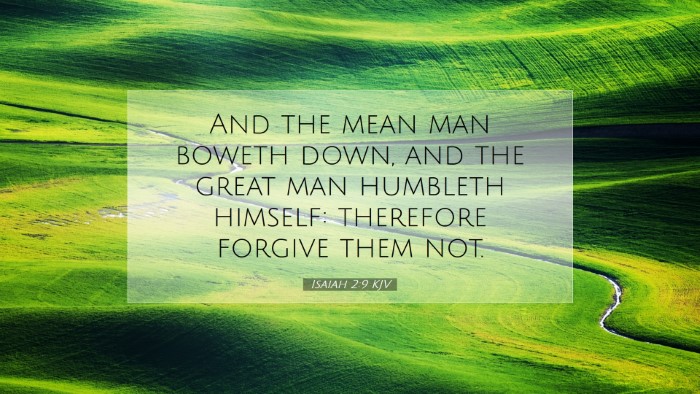Commentary on Isaiah 2:9
Verse: "And the mean man boweth down, and the great man humbleth himself: therefore forgive them not."
Introduction
This verse from Isaiah speaks to the nature of human pride and the urgency for humility before the sovereign authority of God. As we explore this passage, we will draw insights from esteemed public domain commentaries such as those by Matthew Henry, Albert Barnes, and Adam Clarke, aiming to deepen our understanding of its theological and practical implications.
The Context of Isaiah 2
The context of Isaiah chapter 2 focuses on the prophetic vision concerning the latter days—a time when the mountain of the Lord’s house will be established as the highest of the mountains. This highlights the exaltation of God's kingdom over earthly kingdoms. The passage reflects a time of judgment, especially relevant to the nation of Israel, addressing both the common man and the nobility concerning their need for humility.
Insights from Public Domain Commentaries
1. Matthew Henry's Commentary
Matthew Henry emphasizes that this verse illustrates the universal condition of humanity. "The mean man" symbolizes the lowly or common people, whereas "the great man" signifies those in high positions of power and social status. Henry asserts that regardless of one’s status, all are equally subject to the divine judgment of God. He notes: "Humility is both a duty and a grace, required from all before God, who looks not at outward appearances but at the heart."
2. Albert Barnes' Notes
Albert Barnes elaborates on the consequences of pride and the need for humility among both classes mentioned in the verse. He states that external judgments can lead to an acknowledgment of one's need for God’s mercy, regardless of social standing. Barnes interprets the phrase "therefore forgive them not" to signify a call to sacred justice, where genuine repentance must precede forgiveness. He encourages believers to seek genuine humility that leads to reconciliation with God.
3. Adam Clarke’s Commentary
Adam Clarke offers detailed insights on the social dynamics at play in Isaiah’s time. He interprets the verse in light of idolatry and the ensuing judgments. Clarke suggests that this judgment serves as a reminder to nations that, regardless of wealth or status, nothing can shield them from God's justice. He writes: "A sober reflection on our own dignity should lead us toward humility, understanding that without God’s grace we are nothing."
Theological Implications
The theological implications of Isaiah 2:9 are profound. There is an inherent reminder of God's impartiality—His judgment transcends human hierarchies. The necessity for humility is emphasized, as both the humble and the mighty must recognize their dependence on God.
- The Sovereignty of God: God’s sovereign authority is a recurring theme in this passage. His judgment is impartial, calling all to humility.
- The Nature of Humanity: The comparison between the "mean man" and the "great man" illustrates the universal need for repentance and humility.
- Divine Judgment: The phrase "therefore forgive them not" suggests God's call to justice, emphasizing that without genuine repentance, forgiveness is unattainable.
Practical Applications
For pastors, students, theologians, and Bible scholars, this verse calls for reflection on our personal and corporate relationships with God. Here are some practical applications:
- Emphasizing Humility: Pastors should encourage congregations to embrace humility as a crucial aspect of faith, reminding them that in God’s eyes, pride can lead to downfall.
- Addressing Social Justice: This text offers an opportunity to discuss issues of equity and justice within the Church and society, recognizing that all people need God.
- Encouraging Repentance: The message that repentance precedes forgiveness can be a central theme in pastoral teachings and in personal discipleship.
- Crafting Prayer Practices: Incorporate prayers that acknowledge human limitations and seek divine assistance for humility and forgiveness.
Conclusion
Isaiah 2:9 serves as a poignant reminder of our need for humility before God. Both the common and the exalted are called to bow before the divine authority of the Almighty. This commentary synthesizing insights from reputable public domain sources underscores the timeless relevance of this verse, inviting deeper reflection and action in our faith journeys.


